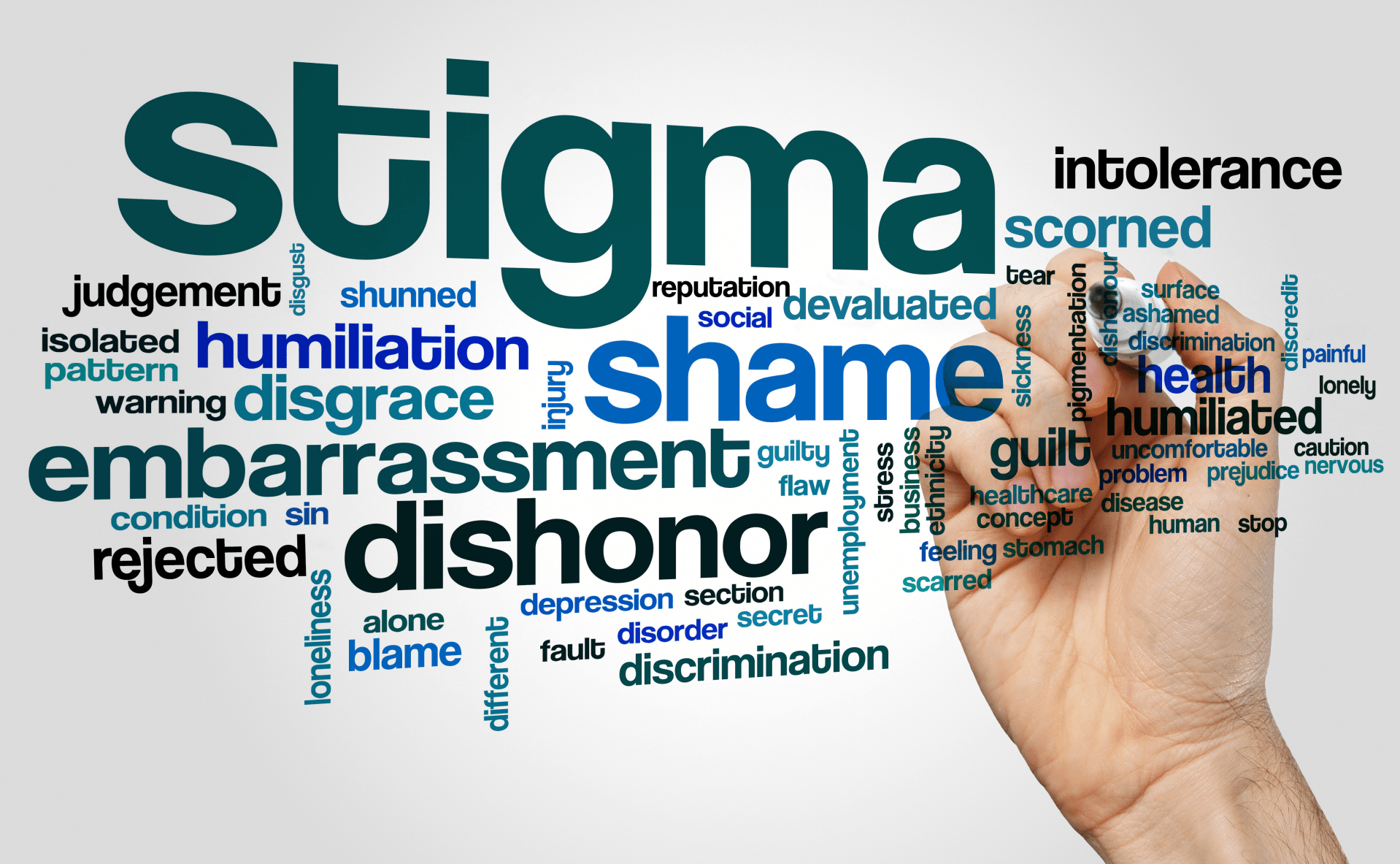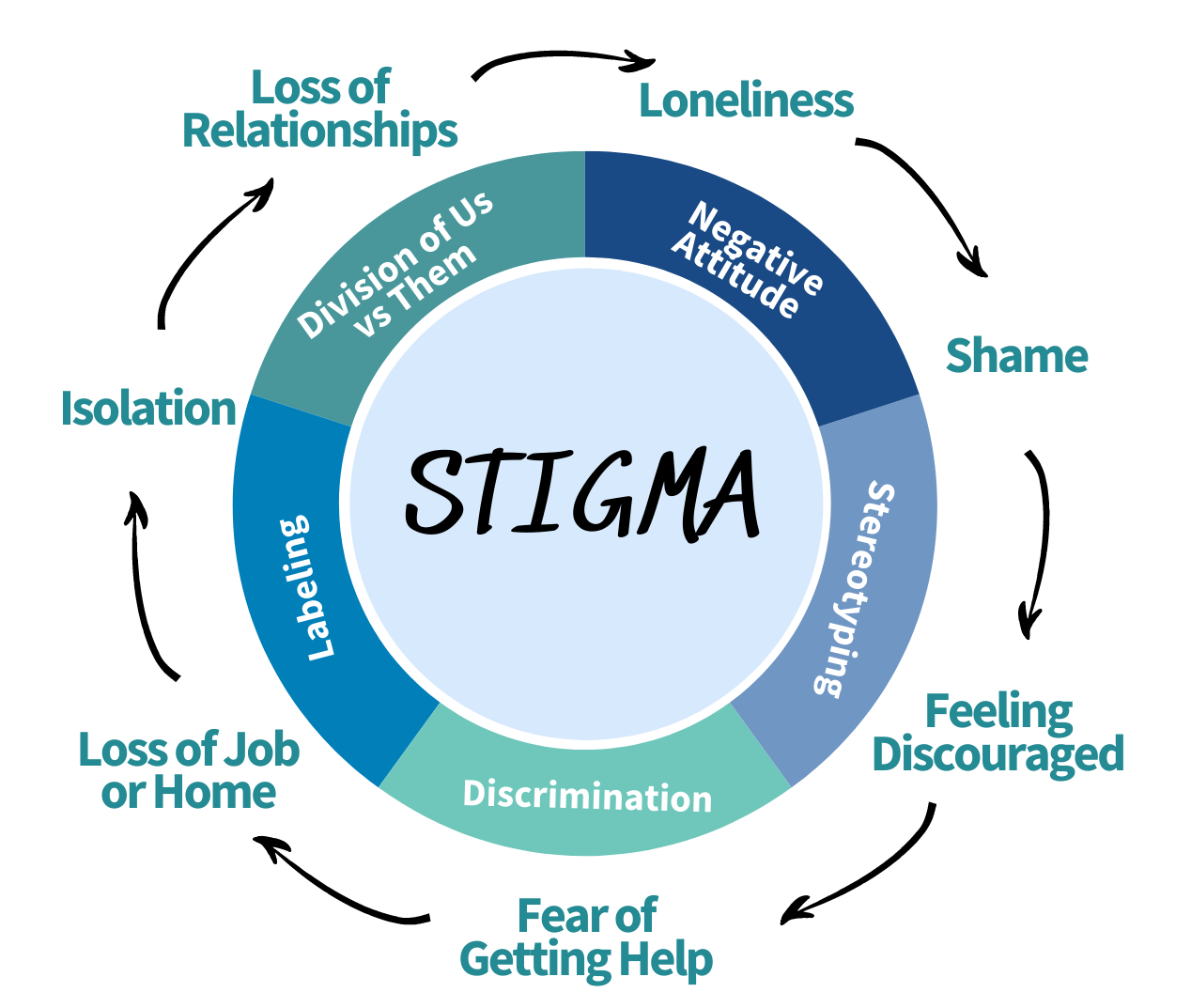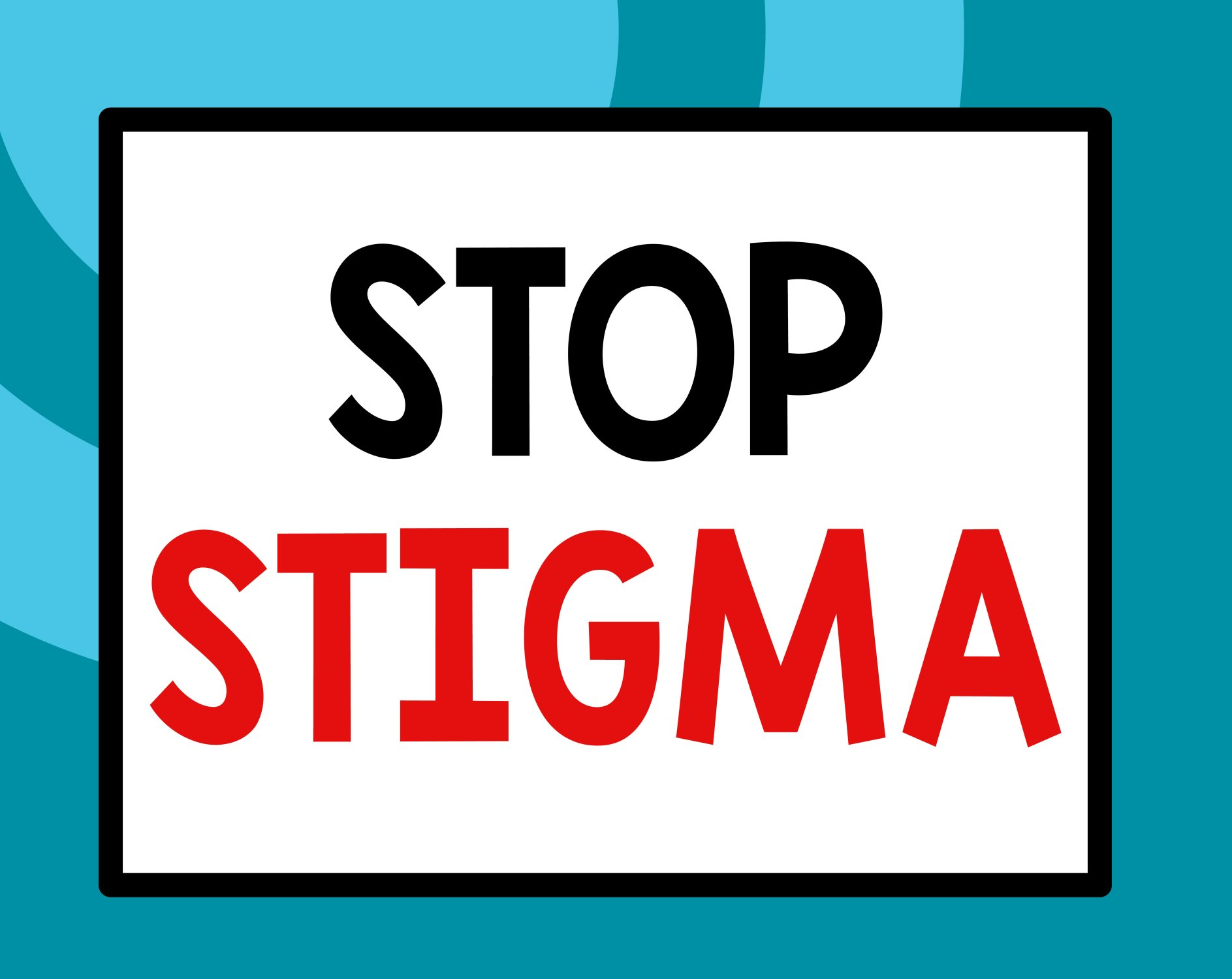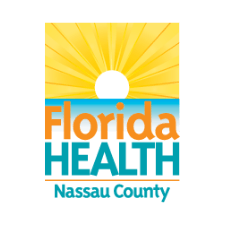If you are an adult in crisis, please call the 24/7 Adult Crisis Hotline at 904-206-1756.
If you are a teenager or young adult in crisis, an adult with a child in crisis, or a friend of a youth in crisis, please call the 24/7 Youth Mobile Response Team at 904-580-0529.
Please call 9-1-1 immediately if you or your loved one is having a medical emergency.
WHAT IS STIGMA?
Stigma is one of the biggest barriers to treatment and recovery from all substance use disorders today.
Stigma is created by other people’s negative attitudes or feelings towards individuals living with a mental health or Substance Use Disorder (SUD).
An individual struggling with opioid misuse or addiction may be discouraged from finding help because of the stigma that comes along with admitting to a drug problem.
These stigmas are often made worse by living in a small community like Nassau County. Fear about rumors spreading, friends and family finding out, or losing employment lead many who struggle with addiction to confront their problem alone, dramatically diminishing their likelihood of overcoming the disease.
Forms of stigma can be seen through stereotyping, discrimination, labeling, divisions of us versus them, and overall negative attitudes toward others. The presence of stigma can cause loneliness, shame, feelings of discouragement, fear of getting help, isolation, and even loss of relationships, jobs, or one's home.
Stopping stigma often begins with the words we choose when discussing substance use disorders, and is critical because of these impacts.
HOW TO TALK TO SOMEONE ABOUT A POSSIBLE OPIOID ADDICTION
When a person struggling is called “an addict,” “a user” or “abuser,” they often interpret that to mean the disorder is their fault, it’s their choice, there is no hope and that they are a criminal.
If you find yourself talking to someone who you think may be suffering from a Substance Use Disorder, try adjusting your words in order to better connect with them free of stigmas.
- “What’s wrong with you?” can become, “What happened to you?”
- “People don’t change” can become, “Our brains can change and heal.”
- “People make bad choices,” can become, “People who feel unsafe may do unsafe things.”
- “It’s all your fault,” can become, “It’s not your fault. I’m sorry this happened.”
- "You’re overreacting,” can become, “You’ve been through a lot. Let’s work together to make things better.”
CONVERSATION STARTERS
Timing matters. Don't try talking to your friend or relative when they are drunk or high; they’re unlikely to comprehend what you're saying or receive it in the constructive manner intended and the situation could escalate.
Talk with your loved one when he or she is clearheaded. One approach is reaching out when they are hungover or remorseful following a drug-related incident—when the negative consequences are fresh in their mind.
Don't worry about saying everything perfectly. Expressing your concern in a caring and honest way is the most important message you can send.
Starting the conversation is often the most difficult part. Here are ways to sensitively start a conversation with someone you’re concerned about:
- I wanted to check in with you because you haven’t seemed yourself lately.
- I’ve noticed you’ve been acting differently lately, and I’m wondering how you’re doing.
- I’ve been worried about you lately.
- I’ve noticed you’ve been taking a lot of pills lately, and I’m wondering how you’re doing.
- I’ve noticed you’ve been using [insert drug name], and I’m worried about you.
KEY POINTS WHEN TALKING TO A PERSON SUFFERING FROM ADDICTION
Be supportive. Addiction has been recognized as a disease by the American Medical Association since 1956. Don't blame, criticize or attack. This isn’t a confrontation, it’s a conversation.
Be specific. Bring up particular incidents such as, "When you cancelled our plans the other day" rather than sweeping statements such as, "You never keep your word."
Be encouraging. Bring up how their drug use has adversely effected what he or she cares about most: career, children, sports. Those struggling with addiction may not care about their own well-being, but may be influenced to seek help for the well-being of their children, parents or even pets.
Be prepared. Feel free to write down what you want to say beforehand. This will be a highly emotional and tense conversation where you’re likely to lose your train of thought. Working from notes will keep you focused.
LISTEN. The main thing is to listen. Your friend or relative is suffering. Show you care by listening and offering your assistance and support.
10 More Tips for Talking About Addiction.
Do’s and Don’ts When Talking About Addiction.
SUCCESS STORIES
Opioid addiction can affect anyone, regardless of race, gender, age or income, and recovery is possible through the support of community and loved ones recognizing and ending the stigma associated with addiction.
We encourage you to check out these stories from families and those who have struggled with addiction. And more stories can be found here from individuals who struggle with addiction and family members of those who have struggled with addiction. You are likely to find someone here you can relate to and learn from.
This project is supported by the Centers for Disease Control and Prevention of the U.S. Department of Health and Human Services (HHS) as part of a financial assistance award totaling $165,200 with 100 percent funded by CDC/HHS. The contents are those of the author(s) and do not necessarily represent the official views of, nor an endorsement, by CDC/HHS, or the U.S. Government.
All Rights Reserved | Florida Department of Health - Nassau County. Website by BizBolster Web Solutions, LLC






